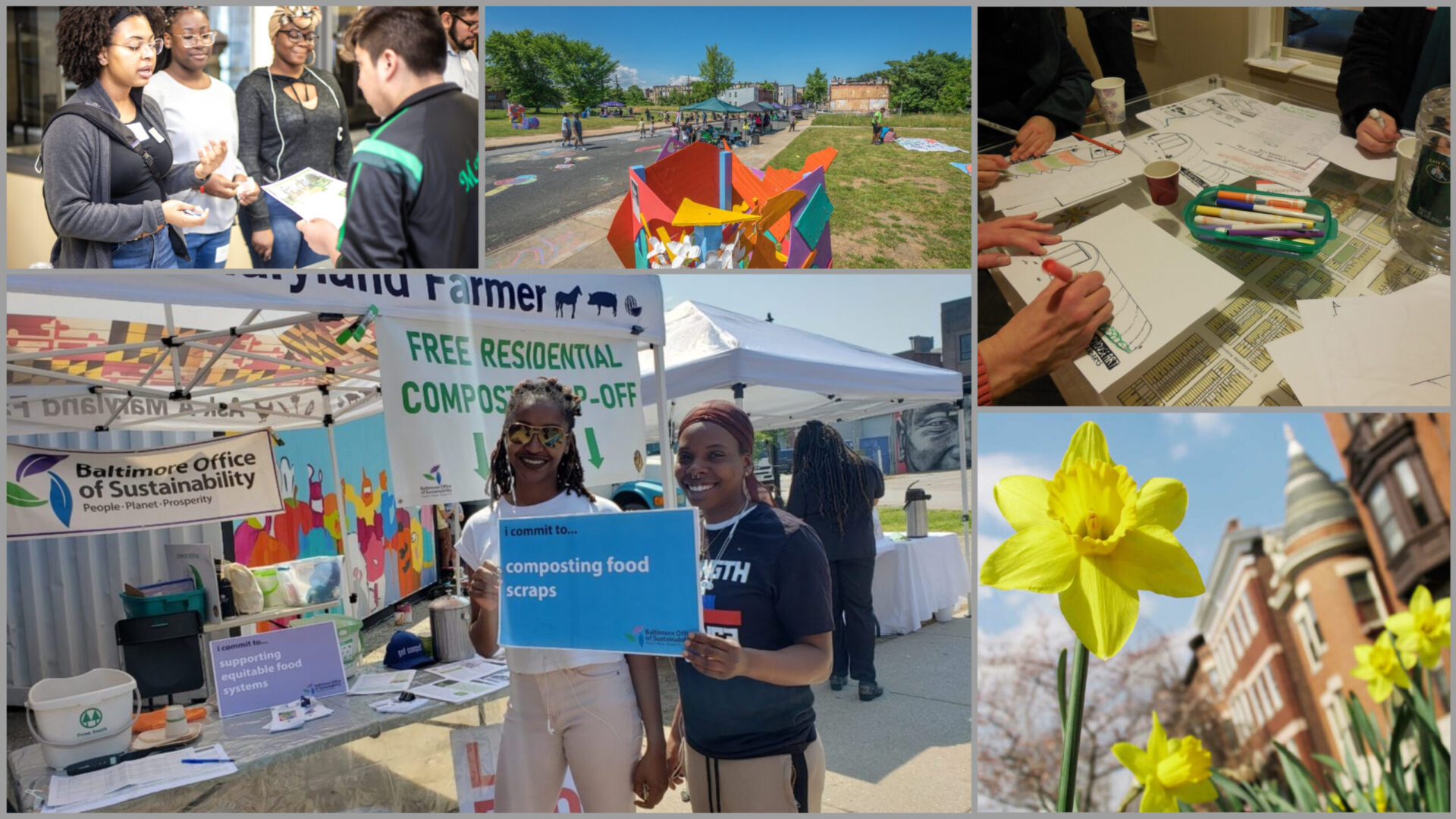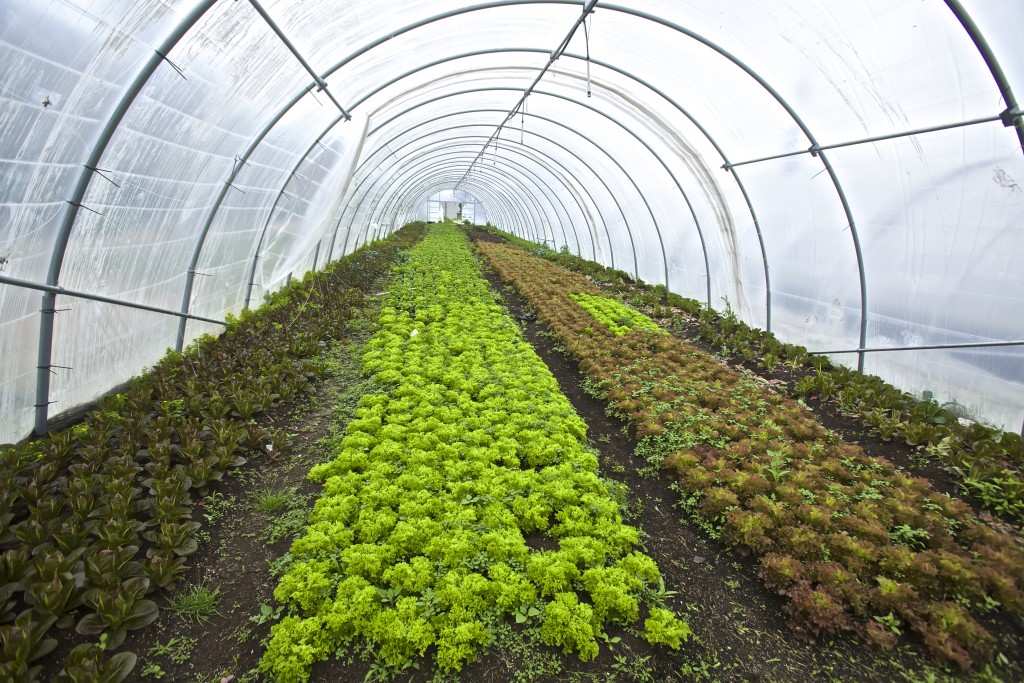Read the City of Baltimore’s 2013 Urban Agriculture Plan!
The 2019 Baltimore Sustainability Plan’s Urban Agriculture chapter (pages 25-27) describes our vision for “A city where communities that have been historically excluded from access to land and to fresh, healthy,
culturally-appropriate foods are those that benefit most from urban agriculture opportunities” and lays out strategies and actions to achieve this vision. Together with other city agencies and partners, including the Baltimore Food Policy & Planning Division, the Office of Sustainability works to support gardening and farming in Baltimore City. For more information about the context, resources, and regulations related to urban agriculture in Baltimore City, see this 2021 presentation and read more below.
Encouraging Urban Agriculture on Vacant land
Urban Agriculture Resources
There are MANY networks, training organizations, grant and loan programs, research tools, sources for supplies, and other resources for people interested in growing produce in Baltimore City. Check out our full list here.
Land Leasing Initiative
Prequalification applications are accepted any time to the Homegrown Baltimore Land Leasing Initiative, a partnership of the Departments of Planning and Housing & Community Development. Farmers must have at least a year of experience. Those accepted are eligible for five-year leases for city-owned land for farming, at a cost of $100 per year. If the city wishes to use the land for a different purpose after the initial lease term ends, there will be a minimum 18-month notice-to-vacate period to allow the farmer adequate time to meet their commitments to consumers, contractors, grantors, employees, and their community, to consider other sites, and, if desired, to transition their operations. Four farm leases have been executed so far, in Sandtown-Winchester, South Clifton Park, Reservoir Hill, and Park Heights for a total of four acres. In 2021, we adopted new community engagement guidelines for the program.
Urban Agriculture Tax Credit
In 2014, the State of Maryland updated its Tax Code to allow for tax credits for urban agriculture. In 2015, the Baltimore City Council enacted new legislation to implement this tax credit here in Baltimore City. This credit gives farmers 90% off of their property taxes, as long as the parcel is used for urban agriculture for five years, produces a minimum threshold of value, and is not used for any other purpose that would normally subject it to property taxes. To apply, please fill out the Urban Agriculture tax credit application. After the credit is awarded, applicants must submit a Continuing Eligibility Certification Form for each of the following four years. For more information, please review the Rules & Regulations governing the credit. Applications and certification forms must be sent by April 1st to Tax.Credits@baltimorecity.gov in order to be considered for the fiscal year starting July 1st.
Flower Farming
In 2014, as part of the launch of the Growing Green Initiative (now the Baltimore Green Network), we began to explore the viability of flower farming in the city as a way to return more vacant lots into productive use and identify short and long term issues. A stakeholder work group was assembled to offer advice and direction on the project. The Flower Farming Report was developed through a series of interviews with farmers, industry experts and potential buyers, and online and literature research. For those interested in entering the field, Baltimore In Bloom, How to Grow and Sell Cut Flowers on Vacant Land was created as a brief introduction to growing and selling cut flowers in Baltimore City’s community gardens and green spaces.
Rainwater Harvesting
Interested in capturing rainwater to irrigate your crops? Check out this informational pamphlet. If you’d like to know more, check out this full report on the topic. Both documents were created by Jon Smeton, who worked with us as a graduate student at Johns Hopkins.
Promoting Urban Agriculture Policies and Regulations
Building Code
Section 105.2 Permits shall not be required for the following:
“10. Shade cloth OR PLASTIC FILM structures COMMONLY KNOWN AS “HOOPHOUSES,” constructed for nursery or agricultural purposes, not including service systems. THE COVERING OF THE STRUCTURE MUST BE A MATERIAL THAT CONFORMS TO NATIONAL FIRE PROTECTION ASSOCIATION’S NFPA 701 STANDARDS.”
Zoning Code
The Baltimore City Zoning Code went through a comprehensive update in 2018, and now includes new use categories and standards for community gardens (which fall under the category of “Community-Managed Open Space”) and urban farms (which fall under the category of “Urban Agriculture”).
Excerpt from Community-Managed Open Space USE STANDARDS
“Permanent structures are prohibited. However, temporary greenhouses, including high tunnels/hoop-houses, cold-frames, and similar structures are permitted to extend the growing season. Accessory structures, such as sheds, gazebos and pergolas, are also permitted.”
Excerpt from Urban Agriculture USE STANDARDS
“Greenhouses (permanent or temporary), high tunnels/hoop-houses, cold-frames, and similar structures used to extend the growing season are permitted. There is no limit on the number or square footage on these structures.”
Read the full zoning code sections for these uses here.
Animal Regulations
Updated Baltimore City animal husbandry regulations now allow for bees, chickens, rabbits, and goats. Read the full regulations here and download the permit for keeping these types of animals here.
Soil Safety
In 2014, we developed a Soil Safety Policy for Food Production with support from the Abell Foundation, Johns Hopkins Center for a Livable Future, and other partners. The policy provides guidance on soil safety assessment and testing to anyone wishing to grow food for human consumption in Baltimore, and also lays out requirements for those seeking a Use Permit for a new community garden or urban farm under Baltimore’s Zoning Code. This policy was updated in 2021 based on data from the Center for a Livable Future’s multi-year Safe Urban Harvests study.


